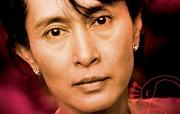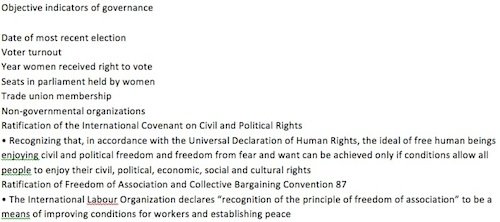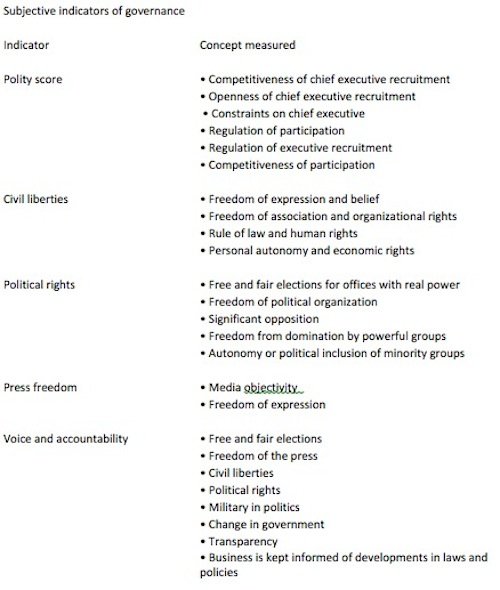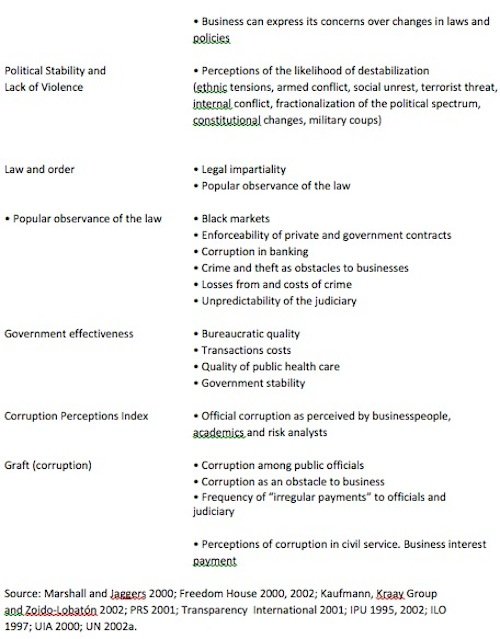Aung San Suu Kyi, the Winner of the Nobel Peace Prize, 1991 in a contribution titled “Human development and human dignity” stated that “Respect for human dignity implies commitment to creating conditions under which individuals can develop a sense of self-worth and security. True dignity comes with an assurance of one’s ability to rise to the challenges of the human situation.
Such assurance is unlikely to be fostered in people who have to live with the threat of violence and injustice, with bad governance and instability or with poverty and disease. Eradicating these threats must be the aim of those who recognize the sanctity of human dignity and of those who strive to promote human development. Development as growth, advancement and the realization of potential depends on available resources—and no resource is more potent than people empowered by confidence in their value as human beings.
The concept of human development is no longer new. But some analysts still consider its aspirations bold and daring—some might say overwhelming and foolhardy. The problems are innumerable, forever changing and forever the same—a complex, fluid spectrum of social, economic and political issues that is impossible to grasp entirely. That it defies delimitation is the core of the challenge posed by the task of human development. It demands constant effort and capacity for rethinking, flexibility and fast reactions. The process of human development calls for human resolve and ingenuity. Hopeless, helpless people stripped of their dignity are hardly capable of such activities. And so we return to the link between human development and human dignity.
Human development encompasses all aspects of human existence. It is generally accepted that its
scope includes political and social rights as well as economic ones—but the different rights are not always given the same weight. For example, some people still claim that humanitarian aid and economic assistance cannot wait for political and social progress. This insidious idea creates dissonance between complementary requirements. If the people that aid targets are not empowered, it cannot achieve more than a very limited, very short-term alleviation of problems rooted in long-standing social and political ills. After all, human development is not intended to produce impotent objects of charity.
At this time when the world is preoccupied with the menace of terrorism, it is worth considering that
people who feel deprived of control over their lives—necessary for a dignified life—are liable to search for fulfilment along the path of violence. Merely providing them with a certain material sufficiency is not enough to win them over to peace and unity. Their potential for human development has to be realized and their human dignity respected so that they can gain the skills and confidence to build a world strong and prosperous in harmonious diversity.
The Human Development report Office, addressing the issue “Good governance—for what?”, takes the position that “from the human development perspective, good governance is democratic governance. Democratic governance means that:
- People’s human rights and fundamental freedoms are respected, allowing them to live with dignity.
- People have a say in decisions that affect their lives.
- People can hold decision-makers accountable.
- Inclusive and fair rules, institutions and practices govern social interactions.
- Women are equal partners with men in private and public spheres of life and decision-making.
- People are free from discrimination based on race, ethnicity, class, gender or any other attribute.
- The needs of future generations are reflected in current policies.
- Economic and social policies are responsive to people’s needs and aspirations.
- Economic and social policies aim at eradicating poverty and expanding the choices that all people have in their lives”.
This article next draws on the project entitled “Map-Making and Analysis of the Main International Initiatives on Developing Indicators on Democracy and Good Governance” commissioned by the Statistical Office of the Commission of the European Communities (EUROSTAT) with the overall objectives to provide a synopsis of the different approaches and methodological options available for measuring Democracy and Good Governance and the increased efficiency in the development of indicators related to Democracy, Human Rights and Good Governance aimed at monitoring governmental action. Refer University of Essex – Human Rights Centre publication.
Some critical issues and comments extracted from the above report noted below read together with the aforesaid two quotations are of value to those in Governance in the effective implementation of the LLRC Report;
- Both democracy and good governance remain ‘essentially contested concepts’ (Gallie 1956), since there is not now, nor will there likely be, a final consensus on their definition or content. It is not surprising, therefore, that the European Union avoids defining the term ‘democracy’. For instance, in the revised fourth Lomé Convention it opted instead for the phrase ‘democratic principles’ (Article 5, revised fourth Lomé Convention). It did so in order to emphasize ‘the universally recognized principles that must underpin the organization of the state and guarantee the enjoyment of rights and fundamental freedoms, while leaving each country and society free to choose and develop its own model’ (European Commission 1998). The European Commission considers that the principles can be defined in terms of three fundamental characteristics: legitimacy, legality and effective application.
- There is much greater clarity concerning human rights. These have now been codified in a wide range of UN and regional texts. The UN legal framework comprises the UN Charter, the Universal Declaration of Human Rights and six other core treaties and covers civil, cultural, economic, political and social rights. Human rights have been recognized by the world community as being universal – every human being is entitled to these rights simply by reason of being human.
- It is also recognized that all human rights, be they civil and political or economic, social and cultural, are indivisible and inter-dependent (World Conference on Human Rights, Vienna, 1993). Neither branch of human rights should be given priority over the other, and states have the primary obligation to respect, protect and ensure the universal enjoyment of all human rights. Governments have the obligation to ensure enjoyment of some human rights immediately, whilst others, predominantly economic, social and cultural rights, are to be realized progressively. These are important distinctions when it comes to measuring government performance in the field of human rights. It is also important to distinguish between government obligations on the one hand, and enjoyment of human rights by individuals and groups on the other, in order that appropriate measurement tools might be developed for each of these aspects.
- The term ‘good governance’ emerged in the late 1980s and early 1990s primarily in the World Bank, which was concerned about the ways in which governance influenced economic performance (see World Bank 1992). The economic dimension of good governance has variously included public sector management, organizational accountability, the rule of law, transparency of decision-making, and access to information. This idea was taken on board by the OECD and EU and integrated into its requirements for development assistance. It was later expanded by the United Nations Development Programme (UNDP) to incorporate a political dimension that includes government legitimacy, government accountability, government competence, and the protection of human rights through the rule of law.
- The European Commission has defined good governance as ‘the transparent and accountable management of all a country’s resources for its equitable and sustainable economic and social development’. It lists a number of aspects of good governance, such as equity and the primacy of law in the management and allocation of resources, an independent and accessible judicial system and transparency, and recognizes that corruption is the main obstacle to good governance (European Commission 1998).
- More recently, the European Commission has regarded the term as comprising six components: human rights, democratization, the rule of law, the enhancement of civil society and public administration reform (including decentralization) (Draft EC Good Governance Manual, version created 04/02/2003). In other words, it regards democratization and respect for human rights as being essential ingredients of good governance. As we have seen above, the EC also regards democratic principles as “Underpinning the guarantee of the enjoyment of rights and fundamental freedoms, and thus regards all three categories as being interlinked.”
- Indeed, the most popular definitions of democracy and good governance now include reference to the protection of certain categories of human rights, especially civil and political rights. But they also make reference to some economic and cultural rights, such as property rights and the rights of minorities (see Foweraker and Krznaric 2000). Similarly, definitions of human rights, drawn from the long history of their international legal evolution make reference to the right to participate in public affairs and democratic decision-making, and make explicit reference to a right of everyone to take part in the government of his country, directly or through freely chosen representatives (e.g. Article 21(1) of 1948 Universal Declaration of Human Rights). Moreover, many consider democracy to be ‘hollow’ without the protection of civil and political rights (Diamond 1999), while governance is considered to be ‘bad’ without the rule of law and the protection of human rights.
- Despite their inextricably linked components, the concepts of democracy, human rights and good governance should not be seen as equivalent concepts since each has important exclusive characteristics as well as shared elements.
UN Development Report 2002 states that the following objective criteria alone do not reflect the state of democracy; Human Rights and Good governance are effectively in place;
13. UN Development Report 2002 has identified the following as the subjective indicators that must be assessed;
Some of the key recommendations of the LLRC Report (extracted from a document developed by the Marga Institute) are summarized below linking the recommendations to Democracy, Good Governance, and Human Rightsas defined above;
- Death or injury to citizens and Disappearances after surrender/arrests -(Ch.4)-Ascertain more fully the circumstances under which such incidents occurred, investigate, prosecute and punish wrong-doers and provide redress to next of kin-promotes accountability/rule of law
- Medical supplies-(Ch.4)-Further examination of supplies during the final days given humanitarian considerations- validates effectiveness of public health care
- Conduct of LTTE and Lessons to learn on application of IHL -(Ch.4)-Violations of Human Rights and IHL by ex combatants and cadres be investigated, offenders prosecuted and punished and formulate an effective legal framework -Upholds HR conventions and Rule of Law
- Casualties-(Ch.4)-Conduct household survey covering all affected families in all parts of the island and the circumstances of death, injury and damage to property- promotes accountability/rule of law
- Channel 4 Video-(Ch.4)- Institute an independent investigation and act in accord with applicable laws- promotes accountability/rule of law
- Missing persons, disappearances and abductions-(Ch.5)- promotes civil liberties, accountability/rule of law
- A Special Commissioner to investigate and provide material to AG to initiate criminal proceedings
- An Independent Advisory Committee to examine detentions and arrests under Emergency Regulations and PTA
- Domestic legislation to criminalize enforced or involuntary disappearances
- Island wide HR education programmes covering armed services, police and youth and children etc
- Detainees-(Ch.5)- promotes civil liberties, accountability/rule of law
- Full implementation of Interim Recommendations
- Centralised comprehensive database
- Cooperation and constructive engagement with ICRC and similar humanitarian organizations assuring welfare of detaineesFull implementation of the action plan for rehabilitation of ex-child combatants
- Investigate allegations and institute proceedings against offenders
- Disarm all illegal armed groups
- Establish a multi-disciplinary task force towards a comprehensive child tracing programme
- Investigate perpetrators of conscription and offenders be brought to justice
- Effective high level monitoring of civil administration officers tasked with the implementation of policies aimed at nurturing ethnic harmony and national reconciliation ensuring no unnatural changes to demographic patterns, with irrigation and land settlements, distribution of state land and effective return and resettlements taking place with social justice and in line with the Constitution.
- Towards this objective ensure political leaders, implementers, public officers and community leaders are made aware of overall objectives, risk mitigation action steps, effectively communicated in languages of choice
- Establish as per 13th amendment a National Land Commission to propose future national land policy guidelines
- Illegal Armed Groups-(Ch.5)- promotes civil liberties, accountability/rule of law
- Conscription of Children-(Ch.5)- Upholds HR conventions, promotes civil liberties, accountability and Rule of Law
- Vulnerable groups-Meeting basic needs in the post conflict environment and providing comprehensive medium to long term sustainable solutions for challenges and cross cutting issues faced by Women, Children, Elderly, disabled and internally displaced persons, Muslim Community in the NE, Freedom of expression and right to information, freedom of religion, association and movement, all coordinated by an Interagency Task Force -(Ch.5)- promotes of democracy; Human Rights and Good governance.
- Land Issues-(Ch.6)- promotes of democracy; Human Rights and Good governance.
- Restitution Compensatory Relief-(Ch.7)- The State to review the role and capacity of Institutional support in the post conflict environment and in providing compensatory relief to persons affected by the conflict-Promotes Good Governance
- Common Vision-(Ch.8)- The need to articulate a common vision of an interdependent, just, equitable, open, and diverse society towards developing a shared value throughout the Sri Lankan society built as one yearning for peace, security, amity and harmony ensuring the realization of legitimate rights of all citizens. – Will be the foundation for promoting democracy; Human Rights and Good governance.
- Grievances of the Tamil Community, Grievances of the Muslim Community, Grievances of the Tamils of Indian Origin, Grievances of the Sinhalese in Adjacent Villages, Majority Minority Relations, -(Ch.8)-Effectively addressing these grievances will promote harmony, reconciliation and pave the way towards achieving the common vision.- Will be the critical first steps in promoting democracy; Human Rights and Good governance.
- Failure to give effect to Rule of law-(Ch.8)- The need for effective law enforcement by an independent and impartial Police with an independent permanent Police Commission- A fundamental building block for democracy; Human Rights and Good governance.
- Issues of Governance, -(Ch.8)-The need for concerted action by stakeholders to ensure efficient and effective administrative systems delivered by independent and impartial civil service upholding good governance. – A fundamental building block for democracy; Human Rights and Good governance.
- Institution to deal with citizen grievances- Giving teeth to an independent and impartial office of the Ombudsman linked to feeder institutions at district and provincial levels and be supported by an independent Public Services Commission and the administration of the Northern province reverting to civilian administration are amongst the several key recommendations-Fundamental building block institutions for democracy; Human Rights and Good governance.
- Devolution of Power, -(Ch.8)- . A political solution involving effective and resourced power devolution is imperative to address the cause of the conflict- Will be the foundation for promoting democracy; Human Rights and Good governance.
- Language Policy-(Ch.8)- Full and effective implementation of the Language policy in a manner promoting understanding, diversity and national integration.- Will be the foundation for promoting democracy; Human Rights and Good governance.
- Education-(Ch.8)-Removal of all barriers towards equitable and effective education facilities for all segments of society across the island targeting talent development meeting national human resource needs- Will be the foundation for promoting democracy; Human Rights and Good governance.
- Diaspora-(Ch.8)-A multi disciplinary task force to engage the Diaspora get them involved effectively in the reconciliation process-Will support shared values to develop amongst the Diaspora and be an added building block
- Interfaith activities-Role of Religion-(Ch.8)-Establish a mechanism to serve as an early warning system as a preventive measure to ensure that communal or religious tensions does not lead to conflict and undermining law, order, peace and reconciliation.
- Art and Culture and People to people contact- -(Ch.8)-Will support shared values to develop and be an added building block
- Need for Political Consensus -(Ch.8)- The process of reconciliation requires a full acknowledgement of the tragedy of the conflict and a collective act of contrition by the political leaders and civil society, of both Sinhala and Tamil communities. A separate event be set apart on the National Day to express solidarity and empathy with all victims of the tragic conflict and pledge our collective commitment to ensure that there should never be such bloodletting in the country again.- Will be the supportive roof of the shared values embedded house of Sri Lanka.
- Overall- A high level monitoring mechanism to oversee the implementation expeditiously- The most critical action towards assuring democracy; Human Rights and Good governance.
It can therefore be concluded that expeditious and effective implementation of the LLRC recommendations will lead to meaningful democracy; Human Rights and Good governance in Sri Lanka.
GV



